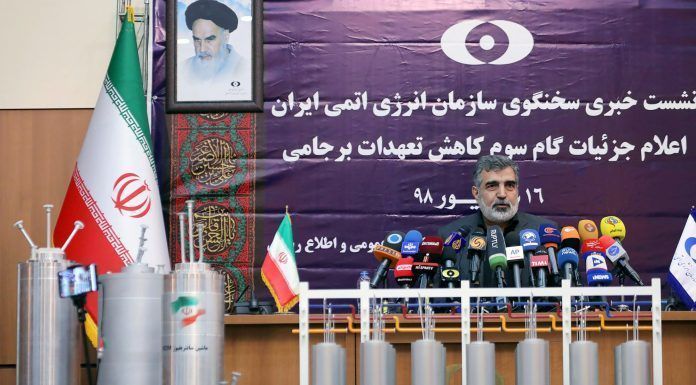VIENNA, Sept 10 (Reuters) – The United States on Tuesday said it was “totally unacceptable” for Iran to drag its feet in cooperating with the U.N. nuclear watchdog, which is seeking answers to issues that diplomats say include the discovery of uranium traces at an undeclared site.
The International Atomic Energy Agency, which is policing Iran‘s nuclear deal with major powers, has called in recent days on Iran to step up its cooperation, warning “time is of the essence”.
While the watchdog has declined to comment on what prompted the warning, diplomats told Reuters inspectors had found traces of uranium at a site in Iran which Israel has described as a “secret atomic warehouse”.
“Any indication that Iran is providing insufficient cooperation to the IAEA on a matter involving potential undeclared nuclear material or activities raises serious and profound questions,” the U.S. statement to a quarterly IAEA Board of Governors meeting said.
“Iran‘s failure to resolve the Agency’s concerns on this matter is completely unacceptable and should be of deep concern to all who support the IAEA and its safeguards verification regime.”
Iran has guaranteed the IAEA access to its nuclear programme as part of a 2015 deal with world powers under which Tehran accepted curbs on its atomic activities in return for access to world trade.
The United States withdrew from the agreement last year and imposed sanctions on Iran with the aim of halting its oil exports and forcing Tehran to negotiate a more sweeping “comprehensive deal”.
Iran has said it will negotiate only if Washington lifts the sanctions. In the meantime, it has begun breaching some of the deal’s restrictions on its atomic activities, in what it calls a step-by-step, reversible response to the U.S. withdrawal and the failure of European countries to protect it from U.S. measures.
The IAEA’s acting chief Cornel Feruta has travelled to Tehran in recent days. He said his call to step up cooperation was “very well understood” by Iranian officials he met. His agency has declined to comment on the specifics of its questions as they are confidential.
“Any potential delay, denial, or deception by Iran that inhibits the IAEA’s essential safeguards verification work must be addressed immediately,” the U.S. statement said.
“Refusal by Iran to do so will only underscore our concern that the matters before us may relate to serious questions regarding Iran‘s compliance with its safeguards obligations.”
(Reporting by Francois Murphy; Editing by Kevin Liffey and Peter Graff)


